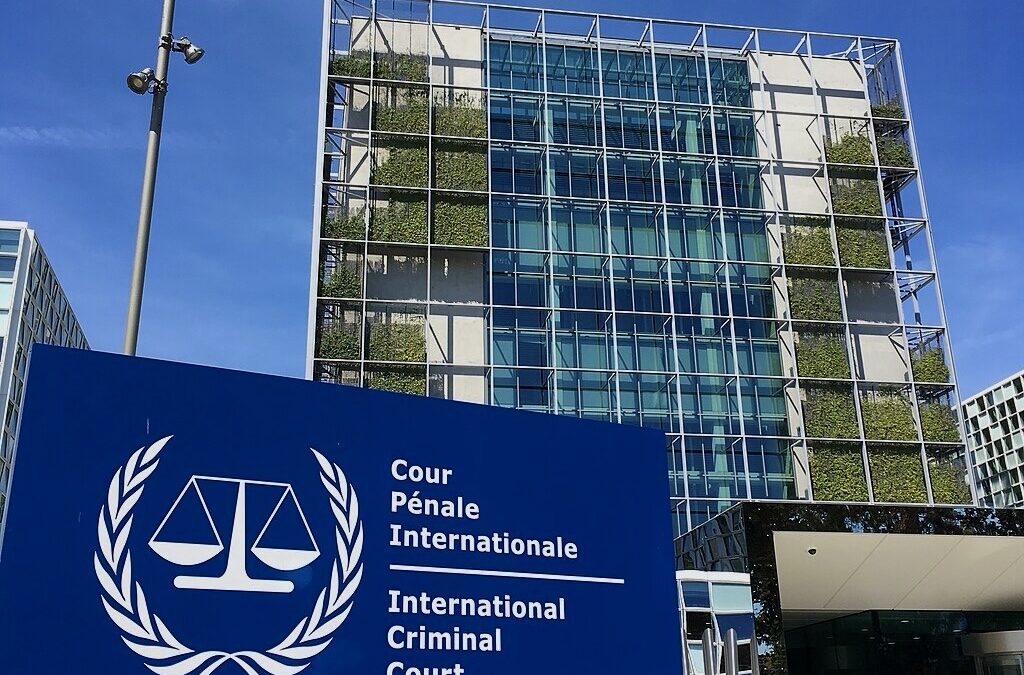

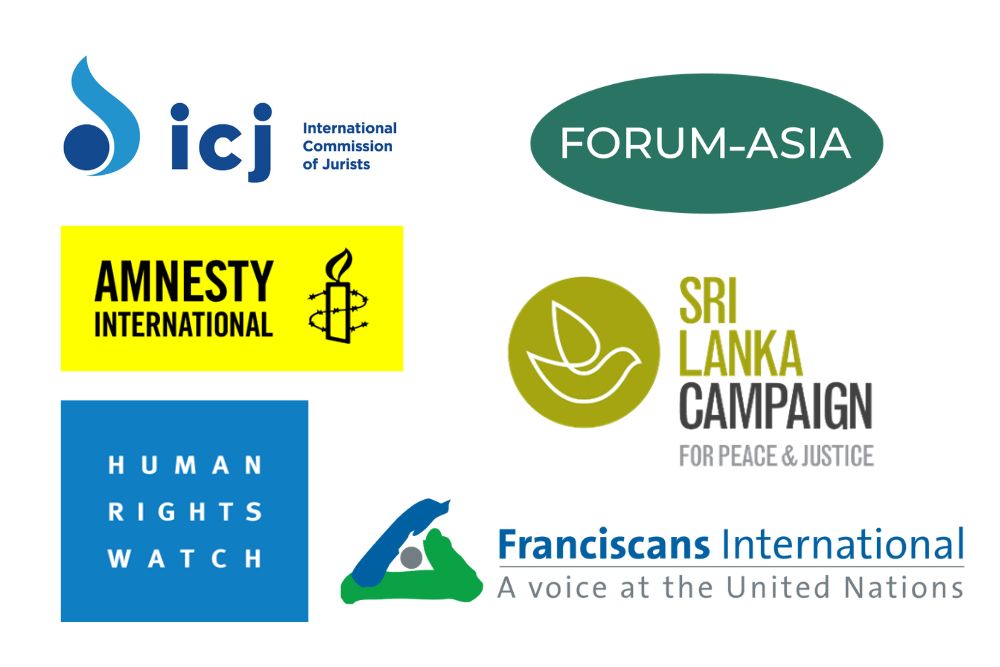
Sri Lanka: Joint letter to the UN Human Rights Council
HRC57 – Sri Lanka: Renew the mandates of the OHCHR for 2 years
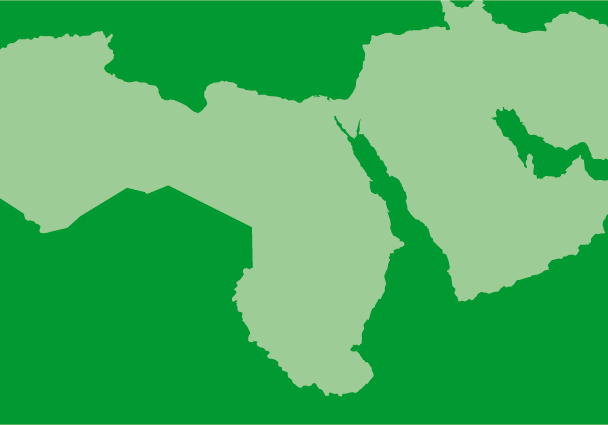
Israel/OPT: Joint Support for Call for a Conference of High Contracting Parties to the Fourth Geneva Convention 1949
In light of credible allegations of ongoing violations of international humanitarian law arising from the protracted armed conflict in Israel and the Occupied Palestinian Territory, in particular in the Gaza Strip, the International Commission of Jurists (ICJ), Amnesty International (AI), and Human Rights Watch (HRW) support the call by a number of High Contracting Parties to the 1949 Geneva Conventions addressed to Switzerland, in its capacity as the depository of the four Geneva Conventions, to convene an urgent Conference of High Contracting Parties to the Geneva Convention Relative to the Protection of Civilian Persons in Time of War of 12 August 1949 (“the Fourth Geneva Convention”).
This call is based on Common Article 1 to the four Geneva Conventions, which states that “The High Contracting Parties undertake to respect and to ensure respect for the present Convention in all circumstances”. Underscoring the continued relevance of this body of law, the ICJ, AI, and HRW recall operative paragraph 1 of the UN Security Council Resolution 2712 on the situation in the Middle East, including the Palestinian question, of 15 November 2023 demanding “that all parties comply with their obligations under international law, including international humanitarian law, notably with regard to the protection of civilians, especially children.” In the same vein, our organisations recall operative paragraph 2 of the UN General Assembly, entitled Protection of civilians and upholding legal and humanitarian obligations, of 26 October 2023 demanding “that all parties immediately and fully comply with their obligations under international law, including international humanitarian law and international human rights law, particularly in regard to the protection of civilians and civilian objects, as well as the protection of humanitarian personnel, persons hors de combat, and humanitarian facilities and assets”.
The ICJ, AI, and HRW call on all High Contracting Parties to uphold the fundamental principle of international law that treaties must be executed in good faith, and fulfil their obligations under Common Article 1 “to ensure respect” for the Fourth Geneva Convention by participating in the Conference and acting collectively to prevent further violations of international humanitarian law in the Occupied Palestinian Territory and Israel.
The ICJ, AI, and HRW consider that in the circumstances currently prevailing in Israel and the Occupied Palestinian Territory, including, in particular, the Gaza Strip, ensuring respect for international humanitarian law requires, at a minimum, a suspension of arms transfers to the parties to the conflict; ensuring accountability for serious violations of international humanitarian law; supporting and cooperating with the Independent International Commission of Inquiry on the Occupied Palestinian Territory, including East Jerusalem, and Israel, and with the International Criminal Court’s ongoing Palestine investigation; and supporting other pathways to accountability including through the principle of universal jurisdiction.
Contact:
Said Benarbia, Director, ICJ Middle East and North Africa Programme, email: said.benarbia@icj.org
Katherine Iliopoulos, Legal Adviser, ICJ Middle East and North Africa Programme, email: katherine.iliopoulos@icj.org
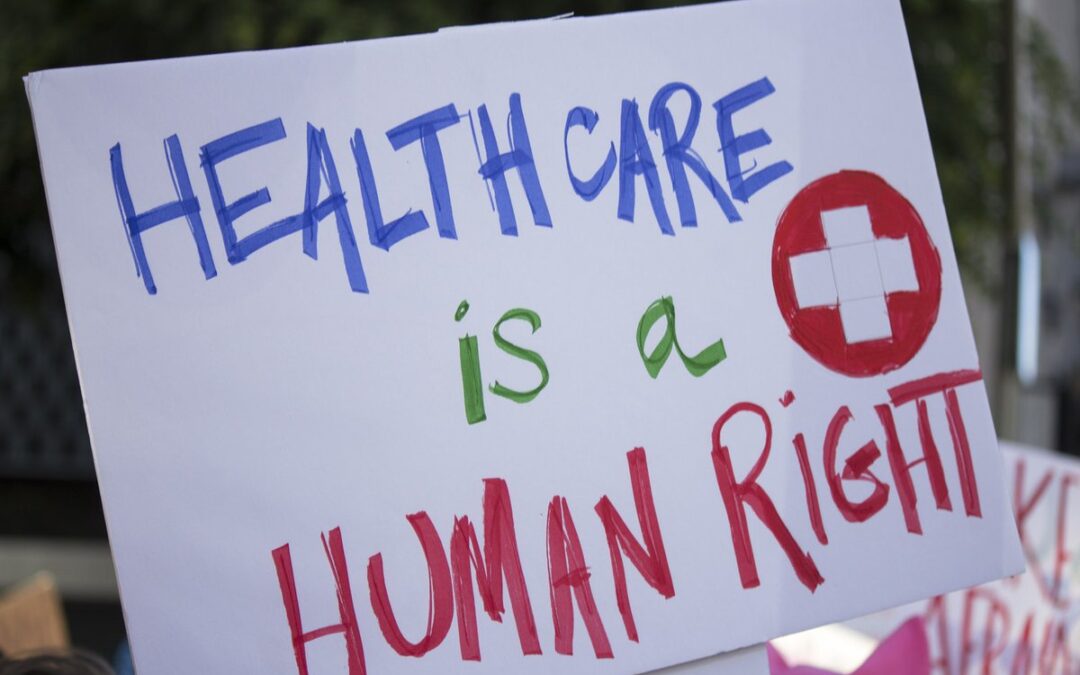
ICJ and other human rights groups: Draft “Pandemic Treaty” fails to comply with human rights
World Health Organization (WHO) member states should push for clear commitments to human rights protections in the text of a draft “pandemic treaty” being negotiated on November 6-10, four rights organizations said today. The current draft fails to enshrine core human rights standards protected under international law, most notably the right to health and the right to benefit from scientific progress, therefore risking a repeat of the tragic failures during the Covid-19 pandemic.
The WHO’s Intergovernmental Negotiating Body is meeting to debate the draft of a new international instrument on pandemic prevention, preparedness, and response with the goal of addressing the failures of the Covid-19 response and preventing another global crisis. However, rather than acting on the lessons learned from the Covid-19 pandemic, the current proposed text offers a weak framework for ensuring that countries will be accountable for maintaining a rights-compliant response to future pandemics.
This is the position taken by four international human rights groups: Amnesty International, the Global Initiative for Economic, Social and Cultural Rights, the International Commission of Jurists, and Human Rights Watch.
“Creating a new pandemic treaty could offer an opportunity to ensure that countries are equipped with proper mechanisms for cooperation and principles to prevent the level of devastation wrought by the Covid-19 pandemic, and the rights violations resulting from government responses,” said Tamaryn Nelson, legal advisor at Amnesty International. “By failing to ground the treaty in existing human rights obligations and inadequately addressing human rights concerns arising during public health emergencies, governments risk repeating history when the next global health crisis hits.”
Existing international human rights law and standards should be explicitly referenced throughout the document, recognizing that they are core to an effective and equitable pandemic response, the organizations said. It should also incorporate developments in international human rights standards reflected, for example, in principles developed by the Global Health Law Consortium and the International Commission of Jurists in the “Principles and Guidelines on Human Rights and Public Health Emergencies,” and the Civil Society Alliance’s “Human Rights Principles For a Pandemic Treaty.”
“A global health architecture that puts profit-driven considerations at the center of global health decisions exacerbated the unprecedented magnitude of illness and death from Covid-19,” said Julia Bleckner, senior health and human rights researcher at Human Rights Watch. “Certain higher-income countries effectively hoarded vaccines and blocked a proposal to share the vaccine recipe, while those in lower-income countries died waiting for a first dose. An equitable and effective response to any future pandemic should ensure states carry out their obligation to, individually and collectively, regulate private entities to prevent them from undermining human rights.”
Human rights standards clearly establish that scientific progress must be available, accessible, acceptable, and of good quality to all individuals and communities. Governments must take steps to ensure that everyone can access the applications of scientific progress without discrimination.
The new treaty should reiterate that governments are required under international human rights law to strictly monitor and regulate private actors when they are involved in financing and the delivery of healthcare, ensuring that all their operations contribute to the full realization of the right to health. But the draft fails to incorporate the human rights framework on strictly monitoring and regulating private actors in healthcare, as well as preventing any harmful impact of private actors’ involvement in healthcare on governments’ capacity to effectively respond to pandemics. For example, the new text includes that state parties should “promote collaboration with relevant stakeholders, including the private sector” without clear human rights guardrails.
The Covid-19 pandemic was both a health and human rights catastrophe. Without clear and binding commitments to human rights law and standards leading up to and during public health emergencies, the crisis gave way to a ripple effect of human rights violations and abuses. Governments enforced lockdowns, quarantines, and other restrictions in ways that often were disproportionate to the public health threat and undermined human rights. In some cases, governments weaponized public health measures to discriminate against marginalized groups and target activists and opponents.
Yet the draft treaty fails to give governments virtually any guidance on how to comply with international law and standards, requiring any restrictions of human rights in the context of such emergencies to be evidence based, legally grounded, non-discriminatory, and necessary and proportionate to meet a compelling human rights threat. To the extent that restrictions undermine full enjoyment of economic and social rights, social relief measures to ensure the protection of those rights should also be put in place.
“The fact that the current draft of the text does not even repeat well established and existing standards in regard to legality, necessity, and proportionality of response measures is as disappointing as it is confounding. The result is a treaty that does not reflect the experience of individuals throughout the world who were subjected to human rights abuses in the name of public health response,” said Timothy Fish Hodgson, senior legal advisor at the International Commission of Jurists. “It is imperative that the negotiated text explicitly includes the necessary safeguards required under international human rights law when responding to a public health threat.”
The Covid-19 pandemic underscored the need for a social safety net and the consequences of failing to substantively account for the social and commercial determinants of health. While the current draft recognizes the ways in which the Covid-19 pandemic exacerbated inequalities, it does not explicitly commit governments to effectively protect the rights that guarantee key underlying determinants of health, including social security, food, education, housing, water, and sanitation, without discrimination.
In order to genuinely achieve its commitments to the principle of equity “at the centre of pandemic prevention, preparedness and response,” the Intergovernmental Negotiating Body should include in the draft explicit language on the obligations to proactively protect the rights of persons from marginalized groups, and to emphasize the human rights protections against discrimination.
“The global health response to the Covid-19 pandemic prioritized profit over the lives of the world’s most marginalized,” Rossella De Falco, programme officer on the right to health at the Global Initiative for Economic, Social and Cultural Rights said. “If countries are serious about preventing the inequities and loss of the Covid-19 pandemic, they will commit to a rights-aligned agreement for future pandemics.”
Please note, the text above is a shortened version of this full statement, adapted by the ICJ for its website.
For more information:
For the International Commission of Jurists, Timothy Fish Hodgson: +27-82-8719-905; or timothy.hodgson@icj.org.
For Human Rights Watch, in Nairobi, Julia Bleckner: +1-917-890-4195; or blecknj@hrw.org.
For the Global Initiative for Economic, Social and Cultural Rights: +39-393-819-5332 or rossella@gi-escr.org
For Amnesty International, Tamaryn Nelson: tamaryn.nelson@amnesty.org
Background:
Previous joint statement of ICJ, AI, GI-ESCR and HRW (24 February 2023) available here.
ICJ and Global Health Law Consortium “Principles and Guidelines on Human Rights in Public Health Emergencies” available here.
Civil Society Alliance for Human Rights in the Pandemic Treaty “Human Rights Principles for a Pandemic Treaty” (11 April 2022) available here.
Civil Society Alliance for Human Rights in the Pandemic Treaty “Why States Must Ensure Full, Meaningful and Effective Civil Society Participation in developing a Pandemic Treaty” (11 April 2022), available here.
Download the full statement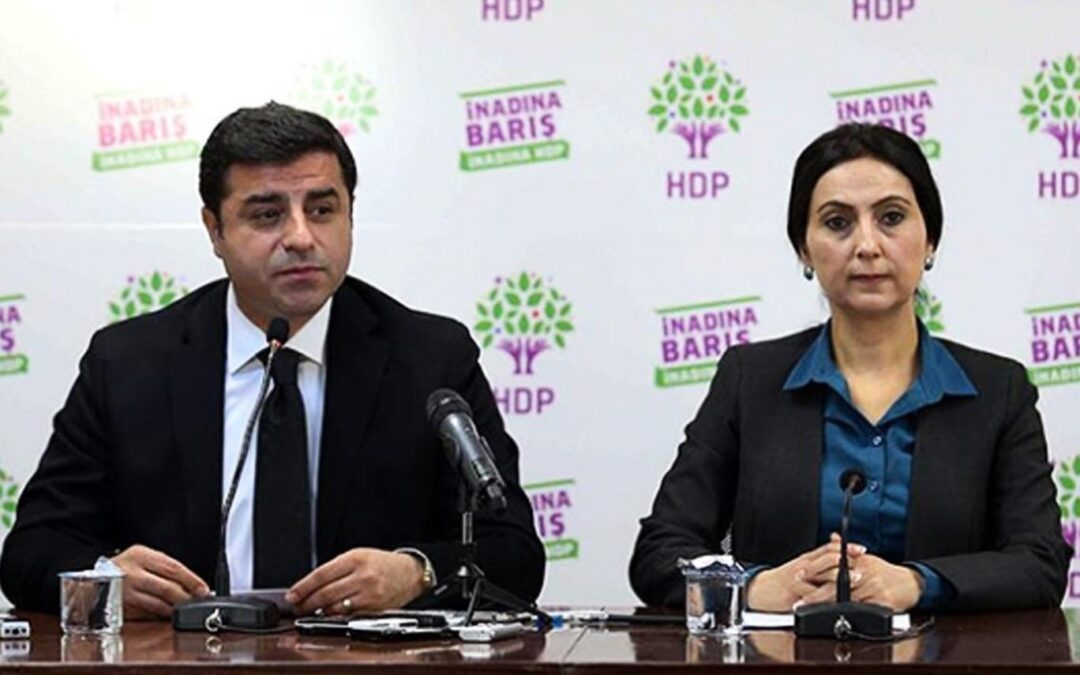
Turkey: Release Politicians Wrongfully Detained for 7 Years
Former Deputies and Mayors Face Prosecution and Prolonged Incarceration for Political Speech.
The Turkish government should abide by international law and implement the binding judgments of the European Court of Human Rights (ECtHR) by immediately releasing politicians Selahattin Demirtaş and Figen Yüksekdağ, who formerly co-chaired the opposition Peoples’ Democratic Party (HDP), four rights organizations said today.
The four nongovernmental organizations—Human Rights Watch, the Turkey Human Rights Litigation Support Project, the International Commission of Jurists, and the International Federation for Human Rights—made their call on the seventh anniversary of the politicians’ wrongful imprisonment.
“The seventh anniversary of the unlawful incarceration of Selahattin Demirtaş and Figen Yüksekdağ is a stark reminder of the Erdoğan presidency’s willingness to use detention for political ends to silence democratically elected opposition politicians representing millions of Kurdish and leftist voters in Turkey,” said Hugh Williamson, Europe and Central Asia director at Human Rights Watch. “In defying the binding ECtHR judgments ordering the politicians’ release, Turkey is flagrantly violating its legal obligations under the European Convention on Human Rights and international law more broadly.”
On November 4, 2016, months after being stripped of their parliamentary immunity, Demirtaş, Yüksekdağ and eight fellow members of parliament from the HDP were arbitrarily detained and placed in pretrial detention, with four others incarcerated over the following five months. At the time, the HDP held 10.7 percent of seats in Turkey’s parliament and was backed by over five million voters. While the 12 other deputies whose cases are covered in the ECtHR judgments are no longer in detention, Demirtaş and Yüksekdağ remain incarcerated.
All the former parliamentarians have been repeatedly prosecuted in individual proceedings based exclusively on their exercise of their right to freedom of expression, protected under international law. This included their political speeches and activities, which did not involve or advocate violence. When a mass trial was opened against them in 2021, many of those ongoing individual case files were merged. The vague and wide-reaching accusations against them in this trial include allegations of “undermining the unity and territorial integrity of the State” (separatism) and even “murder.” These accusations relate to their support for protests that mainly took place in cities in southeast Turkey between October 6 and 8, 2014. The politicians have been held responsible for all offences allegedly committed over the course of these protests, which were organized against the brutal siege of the Kurdish-majority northern Syrian town of Kobane by the extremist armed group Islamic State (also known as ISIS). During the protests, 37 people reportedly died.
The evidence against the politicians, on the basis of which Demirtaş and Yüksekdağ are currently detained, consists of two social media postings supporting protests over the Kobane siege sent from the HDP Twitter account, together with the politicians’ nonviolent political speeches, lawful activities, and witness statements against them added to the case file years later that raise serious questions of credibility.
The ECtHR determined in three judgments—two pertaining to Demirtaş in November 2018 and December 2020, and one to Yüksekdağ and 12 others in October 2022—that their detention on the basis of speeches and social media postings was a politically motivated move to silence them, “stifling pluralism and limiting freedom of political debate, the very core of the concept of a democratic society.” The court found that their rights to liberty, to freedom of expression, and to be elected had been violated. The facts forming the basis on which Demirtaş and Yüksekdağ are detained and were prosecuted for in the 2021 mass trial are substantially the same as those contained in the proceedings which the ECtHR found to be insufficient grounds for their detention.
“Despite the European Court ruling that the grounds to justify Yüksekdağ and Demirtaş’s detention were insufficient, the Ankara public prosecutor in April 2023 requested their conviction on numerous alleged offences concerning their political speech, which may result in their life imprisonment without parole,” said Temur Shakirov, interim director of the International Commission of Jurists’ Europe and Central Asia Programme. “This underscores the ultimate political motives behind the ongoing case targeting the two and reinforces doubts about the fair administration of justice in the country.”
After Demirtaş and Yüksekdağ’s detentions in November 2016, Turkey held a landmark referendum and several crucial election campaigns. The April 16, 2017 constitutional referendum introduced a system of governance concentrating power in the hands of the president. It was followed by the June 24, 2018 presidential election in which Demirtaş ran as a candidate from his prison cell against President Recep Tayyip Erdoğan, the March 31, 2019 local elections, and, most recently, the May 14-28, 2023 parliamentary and presidential elections.
“With two prominent figures of the opposition in detention, the country has been deprived of a significant measure of meaningful democratic debate and fair elections around these crucial campaigns,” said Reyhan Yalçındağ, vice president of the International Federation for Human Rights. “With the March 2024 local elections fast approaching, the Committee of Ministers and the other Council of Europe bodies need to use all available means to ensure the end of the continuing violations of Demirtaş’s and Yüksekdağ’s rights, including their rights to participation in public affairs, which is also a violation of the rights of millions of voters.”
The Council of Europe’s Committee of Ministers, responsible for overseeing member states’ implementation of ECtHR judgements, has issued six decisions and two resolutions calling on Turkey to release Demirtaş from detention. At its December 5-7 session this year, the Committee of Ministers will for the third time examine Turkey’s failure to implement the judgment pertaining to Yüksekdağ and release her from detention.
The four nongovernmental organizations have made a joint submission to the Committee of Ministers asking it to issue a decision in December calling for the release of Yüksekdağ.
“Turkey has ignored the Committee’s numerous decisions and interim resolutions calling for Demirtaş’s immediate release. This refusal to comply with Turkey’s international obligations has been repeated in the case of Yüksekdağ,” said Ayşe Bingöl Demir, director of the Turkey Human Rights Litigation Support Project. “The Committee must intensify its scrutiny against Turkey in relation to these cases without further delay, and this must include the triggering of infringement proceedings, in line with the route rightly followed in the case of the imprisoned rights defender Osman Kavala.”
Eighteen other elected former party officials and mayors from the HDP and an affiliated party, the Democratic Regions Party, are also currently detained. Among them is the prominent former elected mayor of Diyarbakır, Gültan Kışanak, detained since October 25, 2016, and Sebahat Tuncel, former co-chair of the Democratic Regions Party, detained on November 6, 2016. Kışanak’s pretrial detention has exceeded the legal limit of seven years under Turkish law, notwithstanding that seven years’ pretrial detention is a flagrant violation of international human rights law. The detentions of the politicians are blatantly arbitrary and politically motivated, and those imprisoned should be immediately released, the organizations said.
Press release in Turkish: Turkey Demirtas and Yuksekdag press release TURKISH




